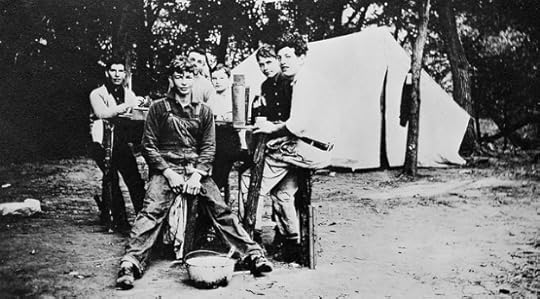Drucker on dissent and imagination, and Eisenhower on the related necessity of surfacing bureaucratic differences

Somewhere in Supreme
Command, supreme strategist Eliot Cohen discusses the importance when
formulating strategy of surfacing differences rather than papering them over,
which is the general impulse in Washington.
I thought of that
when I read this comment in an oral history given by Douglas MacArthur II,
nephew of the awful general and, during the 1950s, one of Cohen's predecessors
as counselor to the State Department:
... the president [Eisenhower] and I went over
to Mr. Dulles and the president said he wanted me to coordinate the policy
plans and policy for the meeting. He said, 'Doug, there's one thing I won't
have.' He said, 'I know your bureaucratic language where there are differences,
you smother those differences with general language, and then every department
goes its own separate way.' He said, 'That's the sure road to disaster.' He
said, 'I want, when there are disagreements, I want first to find out if the
two secretaries or three secretaries, if Treasury is involved or somebody else,
can iron out their difficulties. If they can't I want those issues brought with
clear, separate and distinct positions that differ to me. And then I will
decide what our position is going to be.' He said, 'The last thing in the world
that we can afford is that wonderful bureaucratic language that you guys are so
great at inventing where it's nice and general and it means everything to all
people and each one goes his separate way.' He said, 'That's no way to go.'
(P. 42, Douglas
MacArthur II oral history, Eisenhower Library)
The more I learn about Eisenhower as
president, the more impressed I am.
By coincidence, in my research for my current
book, I've also been reading, because it gets into George C. Marshall's
handling of generals, Peter Drucker's The
Effective Executive. Drucker hits a similar theme and develops it
further. Not only is it important to surface dissent, a decision should not be
made if there is no dissent, because real decisions by their very nature are
difficult and contentious. Moreover, he says, imagination is needed to make
good decisions. And the way to tap the imagination, he says, "is argued,
disciplined disagreement." (P. 153 of my edition)
Thomas E. Ricks's Blog
- Thomas E. Ricks's profile
- 436 followers



